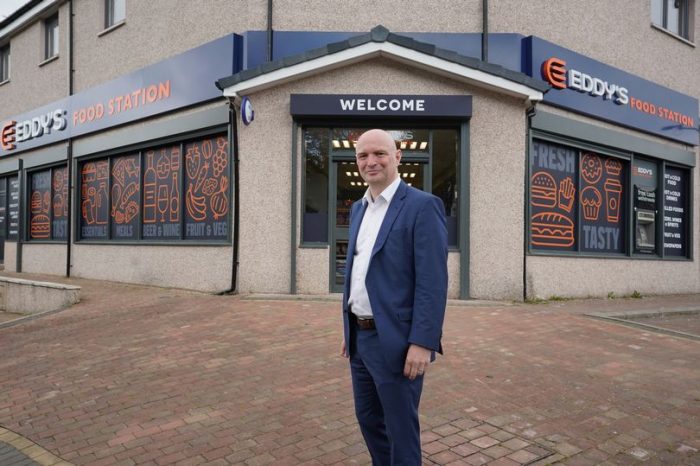NEW INITIATIVE POSITIONS SCOTLAND AS LEADER IN DECARBONISING HEAT

Scottish Enterprise today announces a new initiative, called HeatSource that will position Scotland as a global leader in the supply chain and manufacturing for heat pumps and heat networks.
Backed by £376,000 from Scottish Enterprise, Highlands and Islands Enterprise and South of Scotland Enterprise, HeatSource will grow the capacity, capability and competitiveness of the supply chain that is essential to decarbonising Scotland’s built environment.
Decarbonising heat is a key priority in achieving net zero targets worldwide to address the climate emergency, with heating accounting for more than 40% of global CO2 emissions.
HeatSource represents the next step in Scottish Enterprise’s ambitions, as part of its net zero frameworks, to help companies take advantage of business growth opportunities from decarbonising heat. During last November’s COP26 summit, Scottish Enterprise and Net Zero and Energy Secretary Michael Matheson hosted a series of business events raising awareness of the opportunities.
Scottish Enterprise also signed a Memorandum of Understanding (MoU) with Mitsubishi Electric Air Conditioning Systems Europe Ltd to explore a low carbon heat pump centre of excellence in Scotland, as well as help the company extend its Scottish supply chain and innovation partners, leading to more high quality, green jobs in this critical sector.
Following a competitive tender, Scottish Enterprise has appointed Built Environment-Smarter Transformation (BE-ST) to deliver the HeatSource activity over the next 18 months, including the creation of a new online information hub that will help companies involved in manufacturing, installation, training and the wider heating systems supply chain maximise the opportunities around zero carbon heating.
The initiative involves a review of the sector’s current position to get an understanding of products and services already in development, as well as identifying potential skills gaps and barriers to growth.
As part of the HeatSource network, companies involved in the supply chain or looking to enter the market can be signposted to further opportunities to accelerate growth such as collaboration projects, contracts, funding and research initiatives.
Scottish Enterprise director of economic opportunities and climate, Suzanne Sosna, said: “Decarbonising heat will be vital if we are to meet Scotland’s net zero targets and move beyond energy transition to transformation.
Scottish Enterprise is taking forward HeatSource with enterprise partners and BE-ST as part of wider work to maximise the economic opportunities in the growing low carbon heat market across Scotland to develop a just energy transition as we heat homes and buildings more sustainably.”
She added: “The project aims to support industry to take advantage of the opportunities and bring the supply chain together across manufacturing, research and development, installation and more to build on our expertise and create a robust, resilient and growing low carbon heat supply chain in Scotland.”
This news comes on the same day that the renewable and low carbon industries gather for the first day of the All-Energy Exhibition and Conference 2022 in Glasgow.
Emma Church, impact manager at BE-ST, said: “Decarbonisation of the built environment is one of the biggest challenges faced by the sector -the majority of homes are still heated with gas and this accounts for around 30% of Scotland’s total energy consumption. The need for transformation, however, also presents SMEs with significant opportunities to diversify and transfer knowledge and skills into new markets. However, at the moment the sector is quite fragmented and disjointed with no one clear source for information and guidance.
“As part of the HeatSource initiative we are hoping to encourage and support new entrants into the low carbon heating market and, as well as creating a knowledge base, we will be developing a match-making platform to help maximise opportunities where companies can work together.
She added: “We will also be looking at the needs and opportunities in different regions of Scotland – for instance, in the north east there is existing capability in the oil and gas sector that could be used in the built environment too.
Scotland could become a leader in the delivery of low carbon heat over the next few years, and we’re keen to support SMEs to make the most of the opportunities and new markets, while delivering the important decarbonisation that is urgently needed.” Throughout the three-year project, BE-ST’s strategic partnership with ETP – Scotland’s energy research alliance involving 14 independent Scottish higher education institutions – will help to connect industry partners with academic experts in the field, helping to drive innovation.








